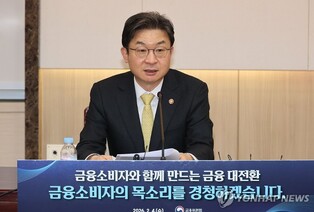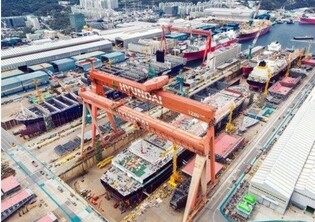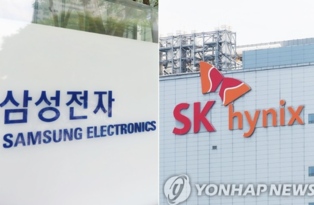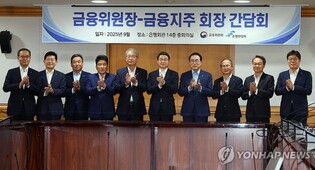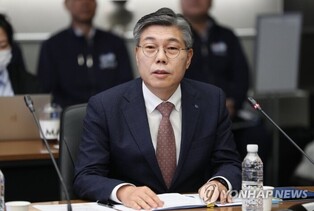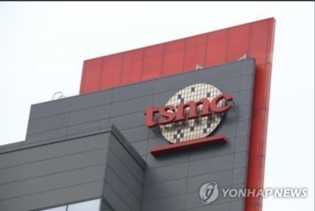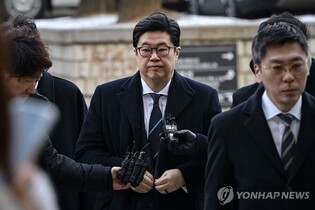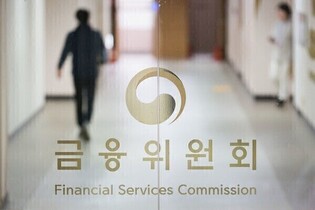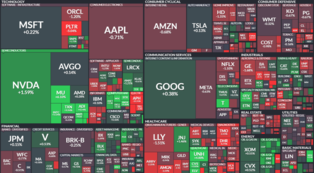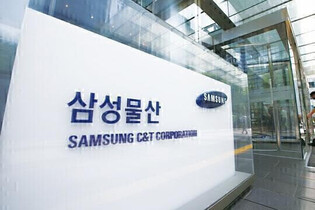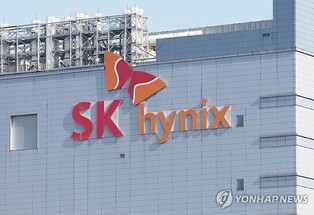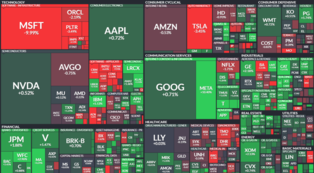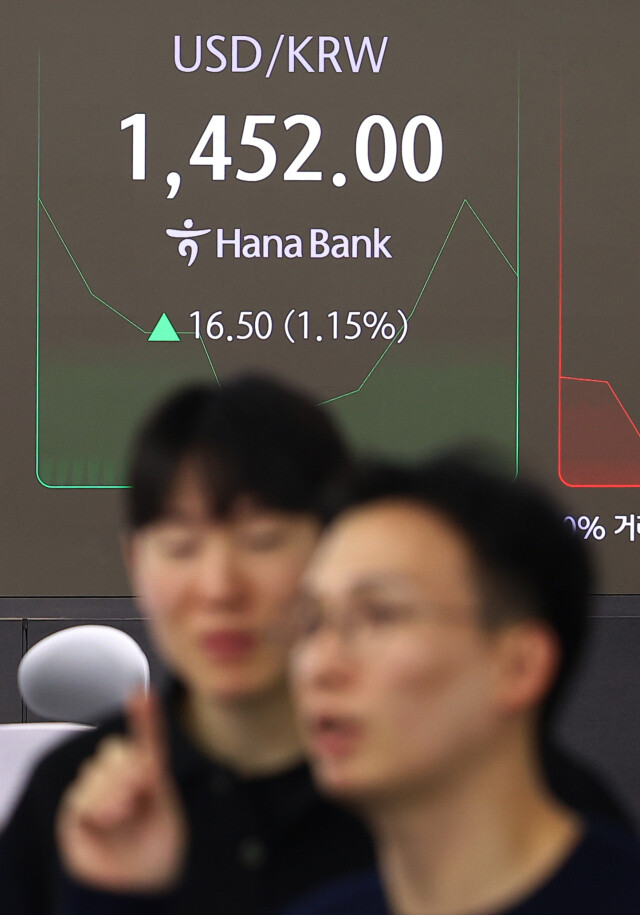 |
On the morning of the 19th, the KRW-USD exchange rate surged by 17 KRW compared to the previous day, breaking through the 1,450 KRW mark. (Photo: Yonhap News) |
[Alpha Biz= Reporter Kim Sangjin] As the U.S. Federal Reserve signaled a slower pace of interest rate cuts, the Korean won-U.S. dollar exchange rate has surged past the psychologically significant 1,450 KRW mark, despite government stabilization measures. This sharp increase has rattled financial markets and posed serious challenges for companies reliant on imported raw materials.
On December 19, the won-dollar exchange rate closed at 1,451.9 KRW, up 16.4 KRW from the previous day. This is the first time the rate has exceeded 1,450 KRW since March 11, 2009, during the global financial crisis, when it closed at 1,471 KRW.
The exchange rate opened at 1,453.0 KRW, a 17.5 KRW jump from the previous day, and remained at similar levels throughout the trading session. The surge was driven by the Federal Reserve's announcement of its intention to slow the pace of rate cuts, strengthening the dollar and causing major global indices, including the New York Stock Exchange, to plunge.
South Korea's stock market also took a hit, with the KOSPI dropping nearly 2% in response to the Fed's stance and the decline in U.S. markets. The KOSPI closed at 2,435.92, down 48.50 points (1.95%) from the previous session. Similarly, the KOSDAQ fell 13.21 points (1.89%) to end at 684.3.
The cryptocurrency market was not spared, with Bitcoin experiencing significant losses following the Fed's announcement. According to Coinbase, as of 4:41 PM EST on December 18, Bitcoin was trading at $10,1159, down 4.73% from 24 hours earlier.
Businesses are also scrambling to respond. Some companies are urgently reviewing their 2024 business plans and exploring strategies such as diversifying import sources or adjusting import schedules to mitigate the impact of exchange rate fluctuations.
Electronics giants Samsung Electronics and SK Hynix, which are building large-scale facilities in the U.S., are particularly vulnerable to the prolonged strong-dollar trend, as it could drive up capital expenditure costs. The battery industry, actively expanding battery production facilities in the U.S., also faces increased investment burdens. Similarly, the refining and steel industries are feeling the pressure from the rising exchange rate, while food companies, heavily reliant on imported raw materials, are grappling with heightened challenges.
Alphabiz Reporter Kim SangJin(letyou@alphabiz.co.kr)



















